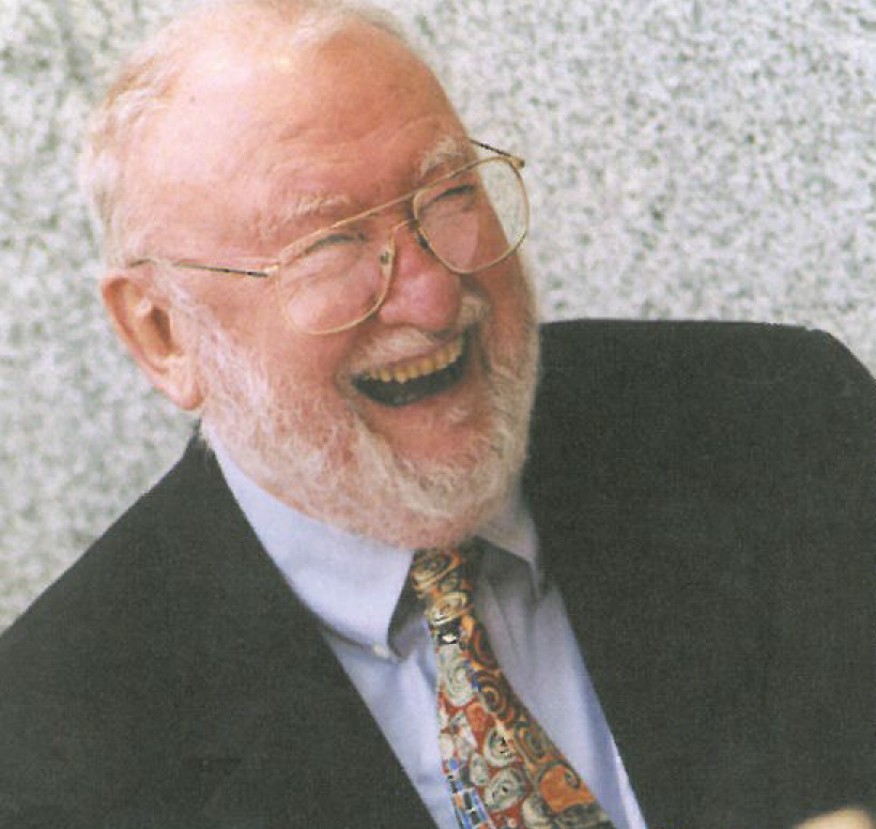"Retirement" is one of the last words one would use to describe the life of Bill Birdsall these days. Although he retired from the School of Social Work in 2001, Birdsall's wide-ranging intellectual interests engage him in teaching a sophomore honors seminar on 'The Evolution of Cognition and Social Science Ways of Knowing" in the College of Literature, Science and the Arts; reading voraciously on the topics of philosophy of science and evolution; and participating in the study "Seeking Justice in Child Sexual Abuse" with Professors Kathleen Faller and Karen Staller. He also plays bridge with his wife Libby, travels, and spends time with their daughter's four young children, who live in Ann Arbor.
Knowing Birdsall's eclectic personal history, the range of his current activities comes as no surprise. He was a Jesuit for sixteen years and a priest for three. He studied philosophy and theology besides receiving a Ph.D. in economics from Johns Hopkins University. His Jesuit roommates at Hopkins were studying classics, biology, mathematics, physics, and chemistry, so he "got to know lots about the way other disciplines actually operate on a day-to-day basis." This informal learning, which he describes as "absorbing things by osmosis," contributed further to his insatiable and wide-ranging intellectual curiosity.
As an economist, Birdsall lived in Washington, D.C. and worked for five years as a researcher at the Social Security Administration. For two of those years he lived with other priests in the slums, and his house was an informal youth neighborhood center. He jokes that he practiced community organizing without knowing it. Before coming to U-M in 1973, he taught economics at McMaster University in Canada. Phil Fellin, dean of the School at the time, hired Birdsall because he had "teaching and research interests in social policy and social welfare, and the credentials to provide a link between the School's doctoral program and the U-M economics department." Birdsall taught classes in research, evaluation, social policy, and statistics. He continues to conduct research with Beth Reed on a study comparing alcohol, tobacco, and drug use among women in the fifty states.
When asked how he would describe his contributions to the School of Social Work, and the social work profession, Birdsall turns the question around to ask, "What did the School of Social Work do for me?" For someone whose professional approach to knowledge was quantitative, he says that his interactions and intersection with the social work profession taught him diagnostic truth. He says, "I can think a little bit like a philosopher, and I can certainly think like an economist, but I love to tackle the kinds of problems that are interdisciplinary." When Faller asked him to join a study on childhood sexual abuse in Western Michigan, he found himself moving beyond his expertise in quantitative research to lecturing on clerical sexual abuse and conducting one-on-one interviews in an extensive qualitative study led by Staller.
John Tropman, a colleague and close friend, says that Birdsall was "such a great addition to our faculty because social work is something of a faith, and Bill knows about faith and its limitations and problems." Tropman was the one who suggested that Birdsall teach a sophomore honors seminar. The topics have included political science, social policy, and now the evolution of cognition. During winter term 2006 Birdsall plans to include a section on Helen Keller. Birdsall is intrigued by her because she argued she was not handicapped, despite being blind and deaf.
Looking back on his life and career, and asked if he would change anything in his life, he says emphatically, "No," and goes on to add, "I don't know how people can imagine changing anything in their lives. Becoming a priest seems a mistake, in a sense. Leaving the priesthood was very difficult, and it was very important that I did it, but being a priest, and a Jesuit, was the way I learned to think and learned to empathize. It was important for me that I did not stay in an economics department, because I would not have been very happy as a narrow economist. Social work broadened my horizons greatly."
-Robin Adelson Little is a freelance writer in Ann Arbor.
